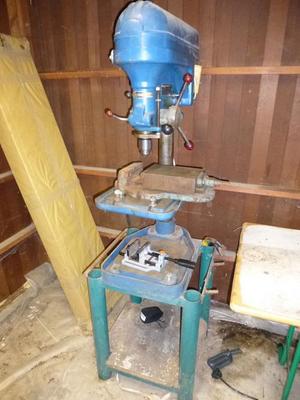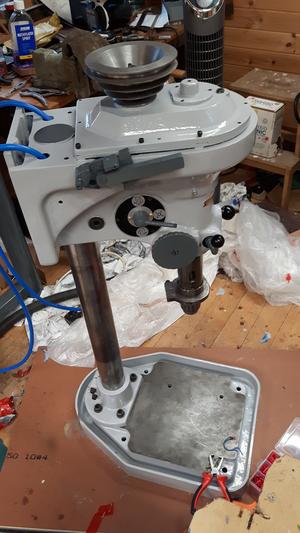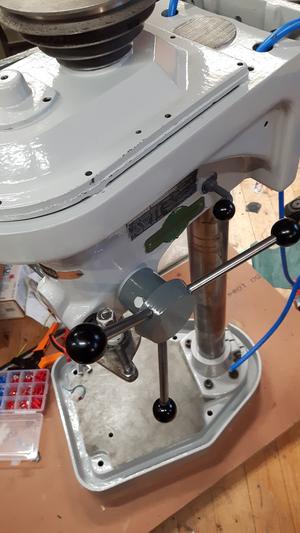custard":20xjg4yl said:
It's the other way around. Old electrical hand held drills generally had a 43mm collar, which was the standard most of these presses are made for. Newer versions of portable power drills often either don't have a collar or they're random sized.
I'll have to dig it out and check. Mine's definitely old - The front housing is bare shiny metal and I don't recall if it even
has a collar...
I *think* it's this one, or very similar:
old Black & Decker drill
custard":20xjg4yl said:
A decent old press for a hand held electric drill, something like the old Wolf for example, will give you better accuracy than a budget pillar drill.
I was hoping it'd be something like that... I figured it'd be cheaper than buying a full on pillar drill assembly with motor, especially since I have the hand drill with the trigger catch already.
custard":20xjg4yl said:
It's a tricky one. Bob, and others like him, repeatedly hammer the message that cheap machinery is money down the toilet, but people really, really don't want to hear that. They desperately want to believe, against all logic and common sense, that you can equip a workshop for hundreds rather than thousands. I think at heart the problem is twofold,
Threefold.... in my opinion, and I'm certainly guilty of this third fold...
For a good half-century there has been a solid DIY culture in the UK.
It started properly back in the '20s, but by the '50s home improvement and DIY was becoming a real 'thing', giving rise to and a market for the likes of B&Q, MFI, Homebase, Wickes, Focus, and others - The general impression, now embedded into our culture, is that woodworking and other related activities are 'hobbies' and thus are affordable for the average honest working man to get up to of a weekend in his little garden shed... In the beginning this was possibly true, likely from underpinning by certain skills being taught in schools, but in today's market not so much.
The problem with today's world is that anything affordable is likely cheap tat. Anything good enough to do the job is expensive and borderline professional equipment... and 'professional' means it's no longer a 'hobby'. At a stretch it's serious Enthusiast level kit, but still far beyond what most people have been ingrained to expect when the desire to work their own wood takes them on a serious basis.
Do It All, Do It Right, You can do it when you B and Q it.... just not very well.







